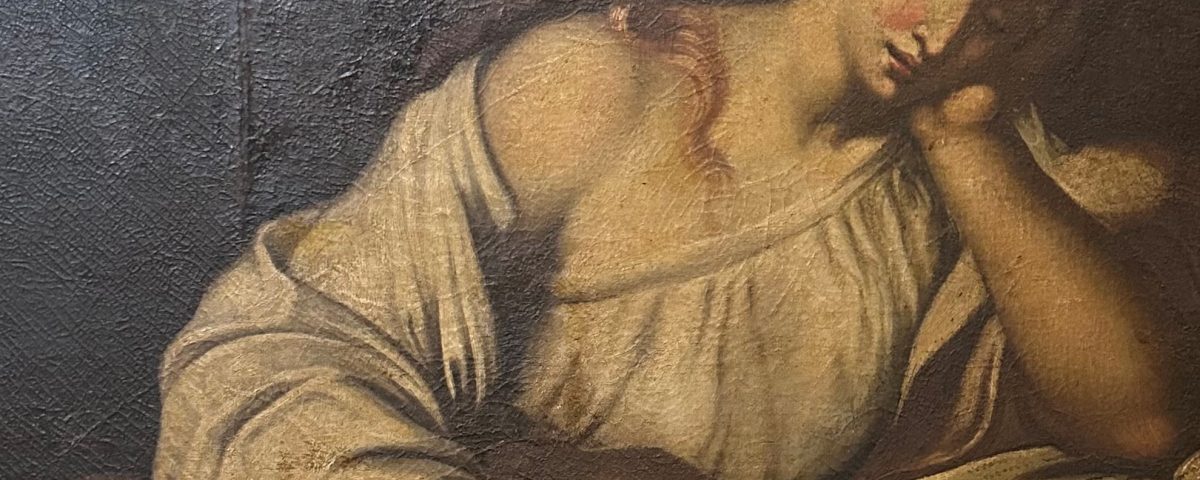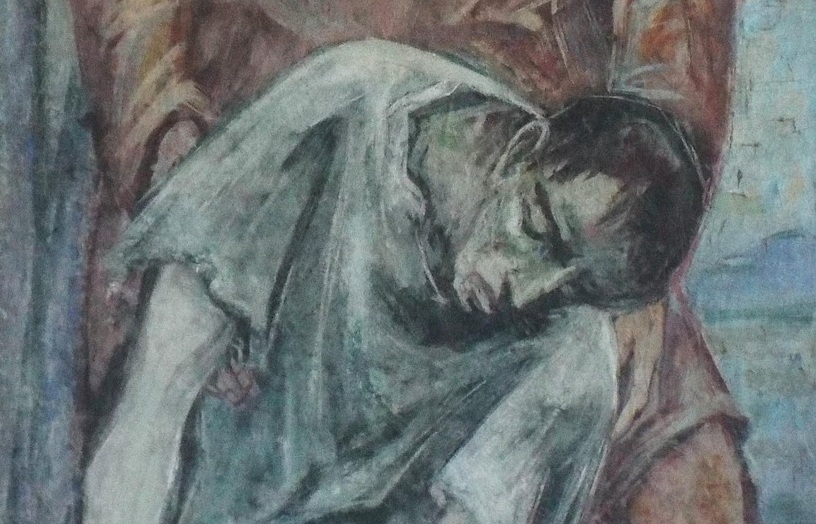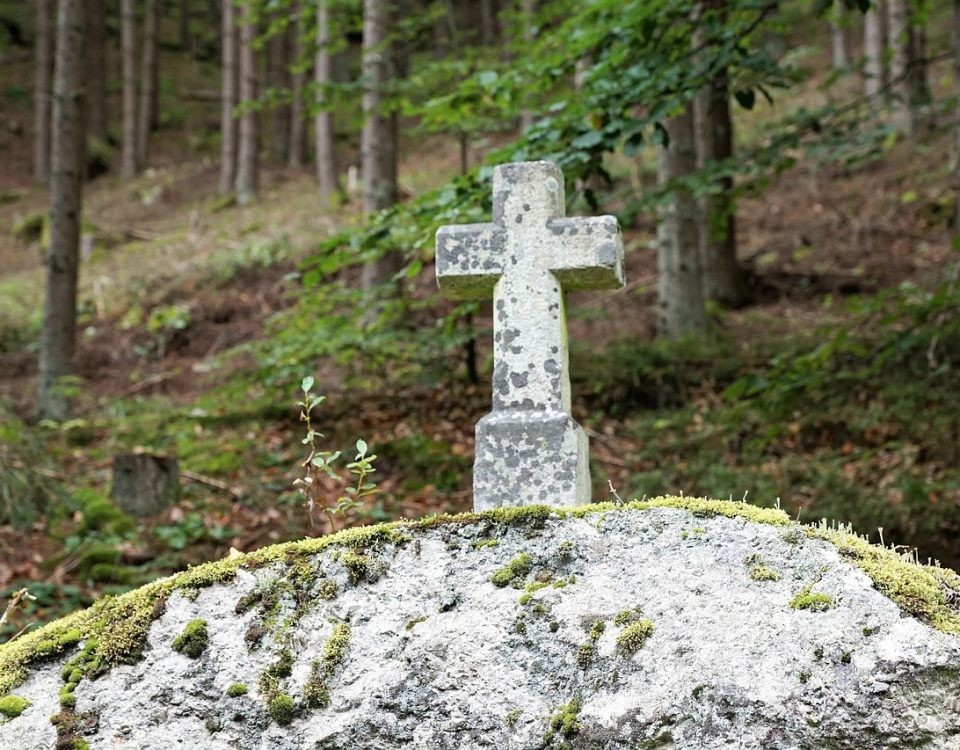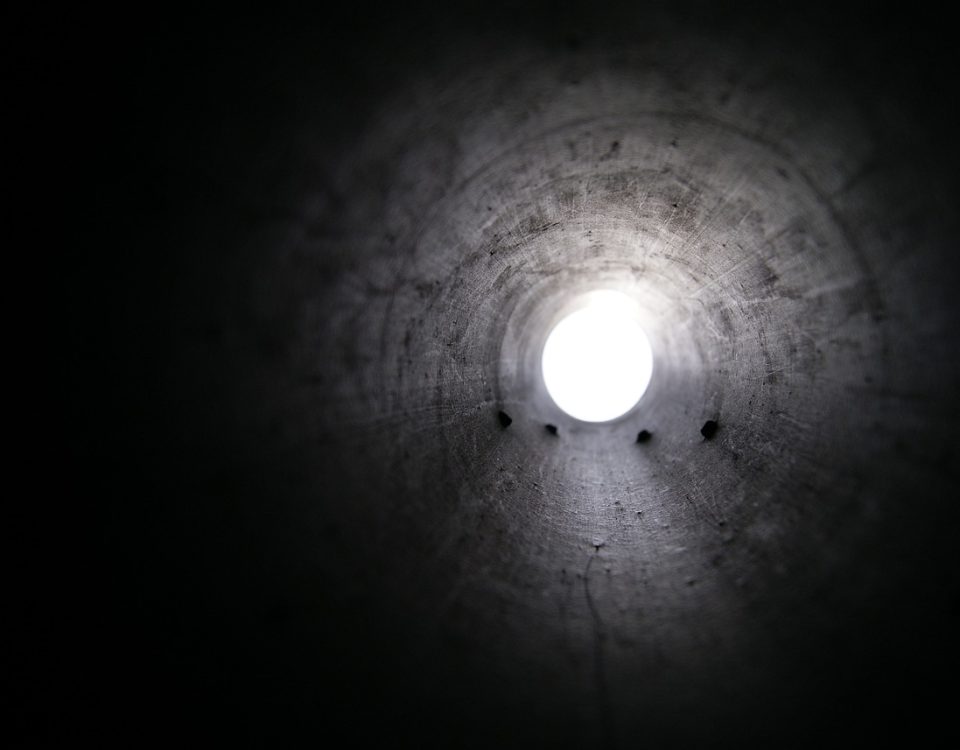You know what it’s like, what I’m talking about; you know when you lose that feeling you once had.
I’m talking, I guess, about spiritual zeal, not necessarily a feeling: that spiritual sense you’re on the right track, the feeling you’ve lost that path a little; the spiritual high that’s now become for some reason a spiritual low. Prayers turned brittle, fewer prayers, rosaries forgotten, maybe you know what I mean. It can happen between people. It can happen to a marriage, for instance, feeling like something is gone; but I’m talking about God and the soul. That’s what I want to talk about, what happens to the best of us. I want to talk about what happens when suddenly we notice we’re spiritually tired. What now? is what I wonder. I don’t know, maybe you do too. Anyway, that’s what I’m talking about; maybe you know what I mean.
I know it is an ancient affliction. Today we feel it: you know how you’re going strong; maybe you’ve come back from a retreat or a pilgrimage, maybe you’ve simply gone from glory to glory all your life, your prayers help you and all is well with your soul; but then, suddenly—or slowly—you are in a different place, and God seems to be in another place; and you begin to wonder if you’ve lost something; and sins feel good again, anything to feel again, because, of course, of the fear you’ve lost touch with God. Maybe you know what I mean; as I said, it happens to the best of us.
As I said, it’s an ancient affliction. The ancient word for it, the Greek word, is ’Ακήδια; the Latin word is acedia. The word means, literally, “I don’t care.” What a perfect word to describe what I’m talking about—about spiritually giving up. The way the ancient spiritual master, Evagrius, described it, way back in the fourth century, still rings true. He describes feelings of sadness and intense boredom, when you feel as if the day is “fifty hours long;” when suffering from acedia, one is sometimes filled with “a hatred for the place,” you know when your home or your church no longer fills you with joy anymore, and you just want to get out of there. That’s acedia; Evagrius called it the “noonday demon,” because it often happens to a person in the noontide of life when all should be well, when all should be right with the world as when the sun shines bright in the middle of the day. That’s the demon at noon; and he said, of all spiritual afflictions, it “causes the most trouble of all.”[1] Again, I don’t know, maybe you know what he means. Maybe you know exactly what he’s talking about.
Why, however, am I talking about it? I am not confessing anything; I am fine. I do know what Evagrius was talking about, though; but I am not talking about myself here, not today, thankfully. Rather, I am simply reflecting upon a bit of John’s Gospel, how I’ve often read this story from the end of the Gospel, this story from the Sea of Tiberias. I want aloud to reflect upon it, especially for those of you who may know right now, very painfully, what I’ve been talking about; I want aloud to reflect upon it for those who may now suffer the affliction known as acedia. I think this story can help; it’s helped me. It’s one of those stories, you see, that helps me find my way out of the darkness whenever I need to find my way out of the darkness, and I just want to share it with you.
At the start of this story from John, Peter says, “I am going fishing.”[2] I’ve always interpreted that line to be something of an admission of despair. “I am going fishing,” Peter says. That is, he’s going back to his old life, his old job. All that he’s seen, all that he’s experienced, profound and miraculous though it was, has it changed him? Or has all that amazing grace now gone out of his life? Does he no longer feel it? “I am going fishing,” he says. Maybe Peter too knows a little bit about acedia. You see what I mean? It happens to the best of us. Even after Easter we can wonder sometimes where Easter went.
But here is the hope of the story. John writes, “Just as day was breaking, Jesus stood on the beach; yet the disciples did not know that it was Jesus.”[3] Peter had gone back to his old life, his old job; and he caught nothing, by the way; his old way of life was fruitless. But Jesus was there. Jesus was there when Peter wanted to give up. When Peter didn’t feel Jesus was there, Jesus was there. When Peter thought Easter was over, it was still Easter. Which is the point. The lesson is acedia isn’t the final truth; feeling that God isn’t in your life, isn’t the truth. Jesus is still very much there; it is still very much Easter, even for you. It’s just we have to find Jesus, open our eyes to see him. But how?
Very briefly, I’ll simply point to the presence of the beloved disciple, that mystic, and to his role in the story. It says, “The disciple whom Jesus loved said to Peter, ‘It is the Lord!’”[4] The beloved disciple, you see, recognized Jesus first. That’s when Peter jumped in the water and ran to Jesus, after listening to his mystical friend. Sometimes we need mystical friends; sometimes we need to be mystical friends to each other. Maybe find that fellow Christian you feel comfortable asking for prayer, for a cup of coffee; be ready to be that sort of spiritual friend to someone. God, you see, gives us as gifts to each other. Let’s help each other find Jesus, for that is in truth the most beautiful thing we could do for one another.
And then, finally, remember that Jesus feeds us. “Come and have breakfast,” Jesus says to them.[5] It is no accident how we are gathered here around a table, an altar; it’s no accident that we are about to eat something. How on earth can a soul escape the spiritual sadness known as acedia? I don’t know, I don’t want you to think I’ve got it all figured out or that I never find myself in that darkness anymore, I do. But, the thing is, I’ve learned to put myself in this place, by this altar; that’s one of the reasons I ended up a priest I think, because I wasn’t sad here, and so I just kept coming back, as “the sparrow finds a home.”[6] And, I don’t know, I just think this altar is just as much yours as it is mine. And it’s still Easter here, and I have seen the Lord. Amen.
[1] Evagrius Ponticus, Praktikos 12
[2] John 21:3
[3] John 21:4
[4] John 21:7
[5] John 21:12
[6] Psalm 84:3
© 2025 Rev. Joshua J. Whitfield










